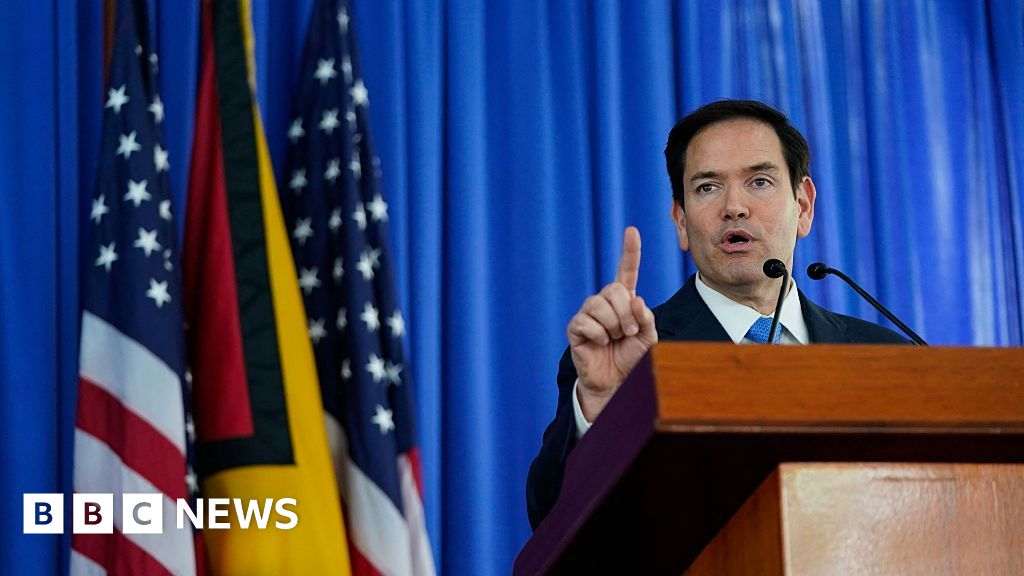Higher ed on the chopping block
Many U.S. universities depend on international student tuition to stay afloat - what happens now?

The move by the U.S. State Department to cancel the visas of "at least" 300 currently enrolled international students is bad news for American colleges universities.
On the surface, this is about suppressing student dissent about the U.S. governments policies. Non-citizens shouldn't come to the United States and criticize or cause disruption on college campuses.

Trump officials have said they are making use of the Immigration and Nationality Act, which allows the State Department to deport non-citizens who are "adversarial to the foreign policy and national security interests" of the US.
The arrests are a part of Trump's pledge to combat what the administration has classified as antisemitism, which was written into an executive order in January.
But as news trickles out about the many people who've had their visas revoked--many of whom had no involvement in campus political protests or statements--it's becoming clear that the real goal is much broader than that.
As part of a new operation dubbed "Catch and Revoke," the department is using artificial intelligence (AI) to search the web for social media posts, likes and shares that might provide a basis for revoking a student's visa.
"Rubio and administration officials say the goal is to protect national security and shut down pro-Hamas sentiment on U.S. campuses. But many of those detained never expressed support for Hamas, and instead were simply involved in anti-war protests, opinion writing, or calls for university divestment from Israel," says Richard T. Herman, an immigration attorney in Cleveland, OH. "Under the “Catch and Revoke: progran, hundreds of international students have received State Department emails urging them to leave the U.S. voluntarily or risk detention. Many of these warnings are based on social media reviews. Some were flagged just for liking or re-sharing posts about Gaza."
Not all of the revocations appear linked to the Gaza, either, Herman noted. Some students have reported the revocation of their visa for "suspicion of DUI."
A recent State Department directive mandates the social media checks for all F (academic), M (vocational) and J (exchange program) visa applicants, he added.
Losing international tuition
For many American colleges and universities, a loss of tuition from international students will have significant financial repercussions.
In the wake of the economic recessions in 1992 and 2008, many U.S. states reduced funding to public colleges and universities, forcing schools to raise tuition to bridge the gap.
And, foreign undergrad students usually pay the full, undiscounted tuition--unlike many of their U.S. citizen counterparts.

Contrary to the popular perception that they "crowd out" or take spots away from American students, the extra funding international students provide often supports lowered tuition for citizen applicants.
"On average, for every one additional international
undergraduate enrolled, the in-state freshman enrollment increases by two, and the number of domestic students who graduate in six years increases by 1.4." reports Princeton's Mingyu Chen. "I show that schools provide more access to in-state students by decreasing the listed tuition and fees. Meanwhile, the increase in international students leads universities to raise total expenditures on students but keep per-student spending constant."
Luping Bu, a history professor at Alma College in Michigan, came to the United States in the 1980s after receiving a full scholarship to Smith College.
“When I came here, in the ’80s, foreign students were sponsored by these universities. And now it’s foreign students’ money in the universities that provide scholarships for American students,” Bu told American Public Media in 2021. “This is how the world has changed.”
COVID was the canary in the coalmine
International enrollment was just beginning to recover from dramatic downturns caused by the anti-immigrant rhetoric of the first Trump administration and then then COVID-19 pandemic, when the numbers of new international students dropped by more than 70 percent, and the number of total enrolled international students fell by more than 40 percent.
Small and medium-size colleges across the country--already struggling with declining enrollment overall--were forced to make dramatic cuts in programming to offset lost tuition, even before the pandemic hit.
Ohio's Wright University, for example, cut positions in its music faculty, stopped offering Italian, Russian and Japanese as foreign language courses, and eliminated its swim team.
More than 60 percent of university PhD candidates in STEM fields are international students, reports Firdosh Khan, a consultant specializing in educational marketing. Fewer international graduate students could spell even more cuts in scholarship funding and research positions in these fields.
Recent data indicate that more U.S. high school graduates are pursuing education abroad, seeking escape from political turmoil at home and a more stable educational environment.
"As the U.S. faces declining interest, other countries are capitalizing on the opportunity to attract international students," he adds. "[U.S.] universities should partner with global universities to offer joint programs, [and] create exchange programs that offer domestic students the opportunity to explore international campuses."
Research funding is also being eliminated
At the same time as the Trump administration is going after international students, it has also suddenly frozen or eliminated millions of dollars in federally funded research at many of these same institutions.
Currently, the largest impact has been the announcement of hiring freezes, the loss of data from cancelled studies, and the loss of jobs that the funding provided for.
Long-term, however, the cuts seem likely to dramatically reshape higher education in the United States. Schools will have to reprioritize certain areas of research and deprioritize others in order to be funded.
What will be the impact of such drastic defunding?
In the short term, American universities will have to deal with the declining revenue from the loss of international students by either raising tuition, cutting programs and services, or both.
U.S. students hoping to attend college may also see their educational opportunities curtailed.
And over the long term, experts say, the United States will experience a decline in its global influence in foreign policy, economics, scientific research, and business.
"No country has trained more foreign leaders than the United States," write Karin Fischer and Sasha Aslanian. "One in five entrepreneurs who founded start-ups in the United States is an immigrant — and three-quarters of them first came to America as students."
Read More About It
Check out the following articles for an in-depth look at the impact of fewer international students attending American colleges and universities.




What International Students in the U.S. Should Know about 'Catch and Revoke'
Immigration attorneys are publishing free advice for international students regarding SEVIS terminations and notices from the U.S. Customs and Immigration regarding visa revocations.














